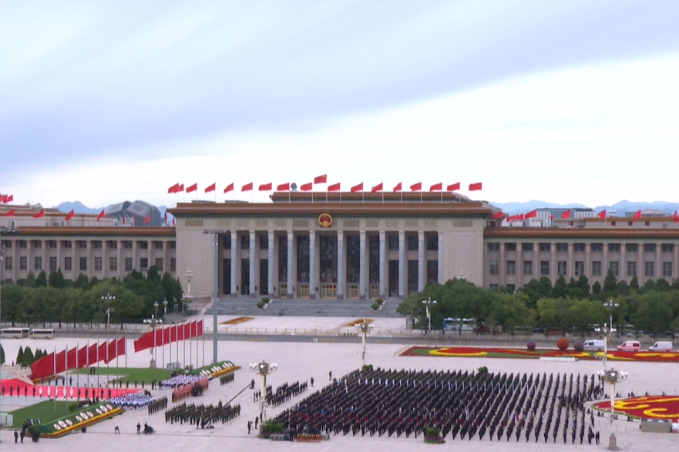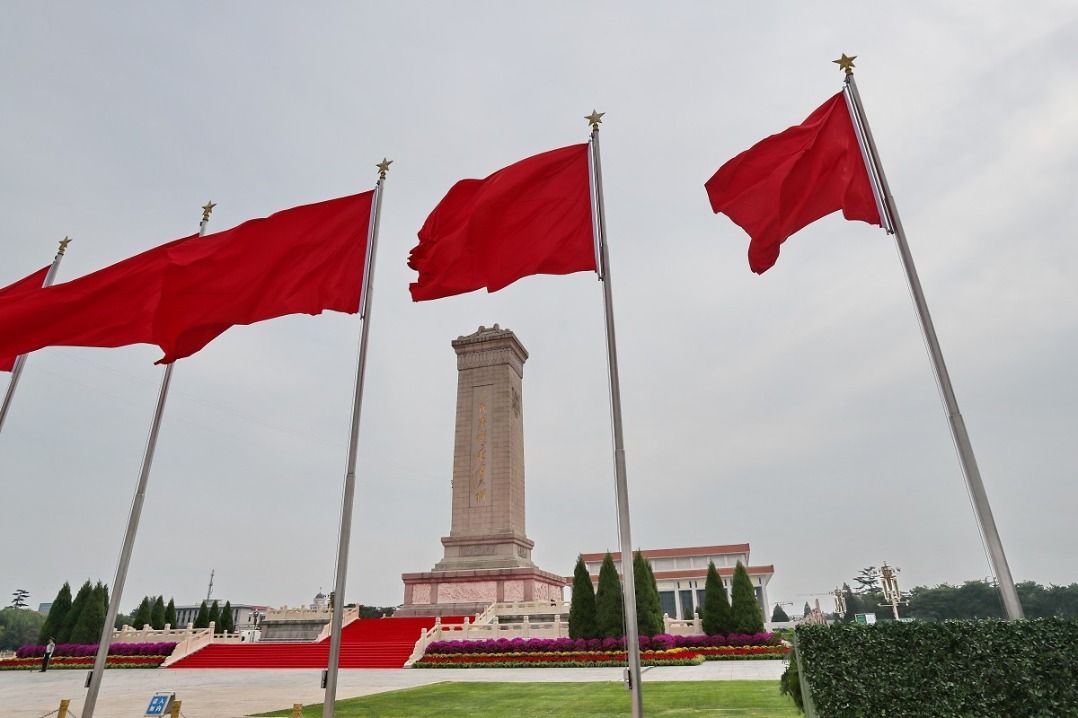Igniting the African dream


China-Africa vocational education cooperation will inject sustained impetus into Africa's industrialization and modernization
Since Africa's first Luban Workshop — a platform for hands-on learning and technical skills development — was launched in Djibouti in March 2019, China has built 12 such workshops in Africa, with the aim to help Africa realize the development and innovation of vocational education through localized vocational training.
In the meantime, thanks to strong financial support from the Chinese government and Chinese enterprises, more and more African youth are coming to China to study and further their education, taking innovative practices such as e-commerce for poverty alleviation, digital economy and green development back to Africa.
The African Union's Agenda 2063 clearly lists industrialization as one of the seven development goals. The constantly upgrading China-Africa cooperation in vocational education is becoming an important driver of Africa's industrialization, helping Africa break through the talent bottleneck that restricts its industrialization.
In recent years, China and Africa have strengthened cooperation in the field of vocational education and achieved noticeable outcomes.
On the one hand, under the framework of the Forum on China-Africa Cooperation, the Chinese government has trained African talents that Africa urgently needs so as to help Africa develop its economy and improve its people's living standards. In January, the China-aided vocational skill training center in Angola was launched, aiming to provide stronger talent support for the sustainable development of Angola.
On the other hand, when investing in Africa, Chinese enterprises attach top priority to training local talents to help Africa turn its demographic dividend into a developmental advantage.
For example, since 2014, AVIC International Holding Corporation, a subsidiary of the Aviation Industry Corporation of China, Ltd, has co-hosted the Africa Tech Challenge with the Kenyan Ministry of Education. Since its launch, more than 1,300 competitors have been trained and participated in the competition, and nine local vocational schools have been receiving funds from the AVIC. So far, 24 students have studied in China thanks to support from the AVIC and nearly 100 trainees have been recruited by local Chinese enterprises.
China's CITIC Construction has established the CITIC Centenary Vocational School in Angola to help African youth, especially women, improve their skills for employability. The project aims at supporting Africa's industrialization and women's empowerment while meeting the company's own employment needs.
However, given the laggard development of industrialization in Africa and Africa's economic downturn caused by the COVID-19 pandemic, China-Africa vocational education cooperation also faces multiple challenges.
To start with, there still exists a funding gap for vocational education assistance to African countries.
At present, China's education and training assistance for Africa is still mainly short-term technical training programs supported by the government, which is not enough to meet the talent needs of Africa's industrialization. More support is needed for the establishment of vocational education and training colleges and bases in Africa. In the meantime, the construction of a pool of experts dispatched to Africa to carry out vocational training should be strengthened. All this requires greater support in the form of grants. Second, a coordination mechanism should be established among the Chinese government, enterprises and vocational training schools.
Some Chinese enterprises have been exploring the African market for many years, and they can provide tailored training to African youth based on their own employment needs. China's local vocational education and training schools have the know-how for combining theory and practice in education. How to comprehensively leverage these advantages is a challenge for the Chinese government.
Third, there is a sharp increase in the demand for vocational training in Africa due to the rising youth unemployment rate.
Africa has a large young population. However, many African youth lack career guidance and do not have the skills needed in today's changing job market, leading to a surge in the unemployment rate.
Take Kenya, the third-largest economy in sub-Saharan Africa, as an example. A lack of necessary vocational skills among the country's large young population has resulted in a very high unemployment rate in Kenya, second only to South Sudan and Rwanda among East African Community members. According to Afrobarometer's Pan-Africa Profile 2023, employment, economic development and healthcare are the top issues that Africa's youth want their governments to address. Across 39 African countries surveyed in 2021-23, to change the unemployment is the top policy concern of 18- to 35-year-olds.
In the future, the advancement of China-Africa cooperation in vocational education requires the concerted efforts of all parties.
First, financial support should be increased.
China should beef up its vocational education assistance to Africa, and encourage African countries to cooperate well in vocational education, so as to enhance efficiency and effectiveness of China's grants.
Second, a communication and collaboration mechanism between the government and enterprises needs to be established.
Cooperation between enterprises and the government should be strengthened to improve China's vocational education assistance for Africa. The government can provide financial support for enterprises and enterprises can undertake the construction of training bases. Together, they can build integrated learning, internship and employment platforms for African students to learn professional skills and achieve sustainable development of vocational education in Africa.
Third, China should provide more career guidance for African youth in accordance with Africa's development strategies.
Young people are an important force driving Africa's industrialization. We should not only provide vocational education and training assistance for Africa, but also help them better adapt to changes in the job market after they return home.
Closer vocational education cooperation between China and Africa will help further align the Belt and Road Initiative with the African Union's Agenda 2063, the United Nations 2030 Agenda for Sustainable Development and the development strategies of African countries, thereby consolidating the talent foundation for Africa's development and injecting sustained impetus into Africa's industrialization and modernization.
Song Wei is a professor at the School of International Relations and Diplomacy at Beijing Foreign Studies University. Chen Yumeng is a PhD student at Beijing Foreign Studies University. The authors contributed this article to China Watch, a think tank powered by China Daily.
The views don't necessarily reflect those of China Daily.
Contact the editor at editor@chinawatch.cn.
































